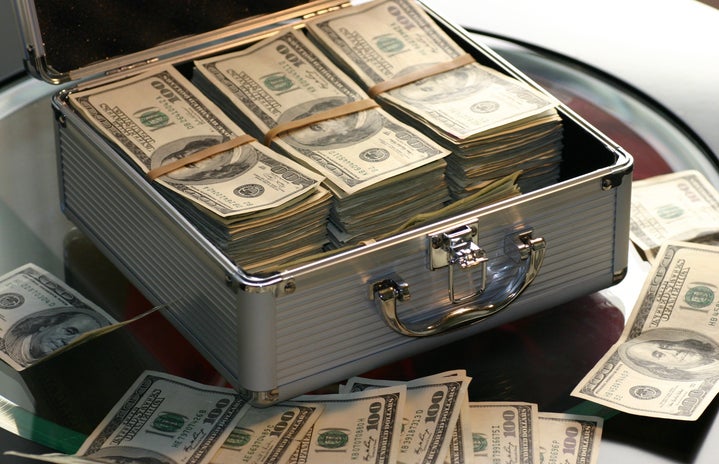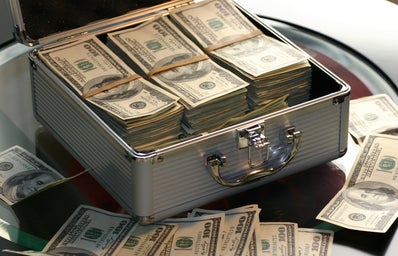When I was growing up, everyone admired icons like Bill Gates or Steve Jobs—and people certainly still do. While having dinner with my parents the other night, they were appalled at my seemingly sudden declaration of dislike for billionaires, trying to convince me that my hostility towards the top 1% is completely ludicrous, for the Mark Zuckerbergs of the world are truly tremendous people that we should all strive to be like. After all, these are the geniuses behind groundbreaking ideas, the average-men-turned-billionaires, the most remarkable self-made men in history.
But what exactly is a self-made man?
According to Henry Clay, a former US Senator, the term is used to describe individuals whose success is due to the individuals themselves, not relying or depending on any outside conditions. So if the billionaires we commend so much are really self-made men, their success should solely be because of their own hard work, so let’s see if that’s really true.
Everyone loves Amazon. I’d be an absolute hypocrite if I said I didn’t use Amazon—how could I not? Sometimes free two-day shipping is too good of an offer to pass up. But can we credit all this innovation and toil to Jeff Bezos, or is there something more unethical lying underneath the surface of great deals and Prime Membership? We’d have to look all over the globe, to where some of Amazon’s production actually occurs. While there are Amazon production sites everywhere, all of them share a common denominator: workers are overworked and underpaid. Whether it’s in Hengyang, China or New York City, numerous accounts and criticism have unveiled the harsh, grueling conditions Amazon workers are forced to endure. A report in New York showed that the injury rates at Amazon are far higher than the national average for warehouses, and that’s just in the U.S. alone. Unions and labor rights groups have been continuously vocal about the complete maltreatment of workers, yet when questioned, our amazing rags-to-riches hero, Jeff Bezos, claims, “I’m very proud of our working conditions and very proud of the wages we pay.”
The undeniable truth is that Jeff Bezos, and all billionaires like him, need these lower-class workers to sustain their top 1% title. Without them, they would not have been able to accumulate massive amounts of wealth. Because of this certainty, it is utterly wrong to make the statement that these billionaires are self-made men, as their riches solely relies on the backs of abused laborers instead of themselves. And while 26 billionaires, including Bezos, earn as much money as the bottom 50% of the entire world, they still refuse to give the workers they exploit enough to make a substantial living, nor basic working conditions. While these 26 individuals make as much money as 3.8 billion people, they continue to deny their subordinates basic rights—the same subordinates who need to be accredited for these billionaires’ wealth but aren’t.
Is it really ethical for the top 1% to control 40% of our country’s wealth, especially when the wealth they have is directly built off the exploitation of the labor of our lower class? The problem worsens if we look at our nation’s policies, which makes sure the rich get richer while the poor get poorer. In 2018, billionaires paid a smaller portion of their income in taxes than average Americans, which is the first time that has ever happened in history. Billionaires paid 23% of their income in federal, state, and local taxes in 2018, while the average American, paid 28%. We see the clear repercussions of this flawed system by the wealth gap that is constantly growing, ensuring that America’s upper class can remain in their safe haven of increasing wealth while they keep exploiting the working class with no consequences.
The top 1% like to oppose wealth taxes by using the argument that their wealth is going to charities instead of going to the government as it would be if they were taxed more; this argument is used constantly by billionaires like Bezos and Zuckerberg, but exactly how much of their money goes towards philanthropy? It is estimated that Jeff Bezos donated $67 million between 2000 and 2017. While this seems like a lot, even if you add the $131 million he donated in 2018, the total is only 0.12% of his wealth. Billionaires are able to manipulate us into thinking they donate so much money for philanthropic causes just by throwing out seemingly massive numbers to the public, when in reality it is only a minuscule amount of their wealth because they are that rich. If you ignore the random numbers that make it appear as if these billionaires are being so charitable and solely focus on the percentages alone, Mark Zuckerberg gave a laughable amount of 0.7% of his wealth in 2018. Billionaires give away seemingly enormous amounts of their wealth because they are forced to, so they can solidify their argument against wealth taxes while strategically avoiding the label of selfishness. But when it comes down to it, their so-called altruistic donations are shameful and nothing short of pathetic.
This is not to say our world’s billionaires are inherently immoral—I’m sure Bill Gates is a nice guy—but when we live in a society that legitimizes the rich constantly getting richer while the middle and lower class suffer, we must realize the system is fundamentally broken. However, beyond the system itself, I don’t think I’m being unfair in attacking our top 1% when it comes to discussions of morality and ethics. Looking at our world, we see imminent dangers of climate change that threaten all of humanity, yet our beloved billionaires, who have the indefinite means and wealth to do something, choose to sit idly by.
These prominent figures garner so much respect from the public because they’ve managed to trick us into believing they deserve all the wealth they have accumulated, but it’s time to realize any notion of a “self-made man” is a complete lie. While we can credit them with their ideas, their wealth is built off the lower class, the exploitation of labor, and the maltreatment of workers—nothing more.
Want to keep up with HCBU? Make sure to like us on Facebook, follow us on Instagram, check out our Pinterest board, and read our latest Tweets!



